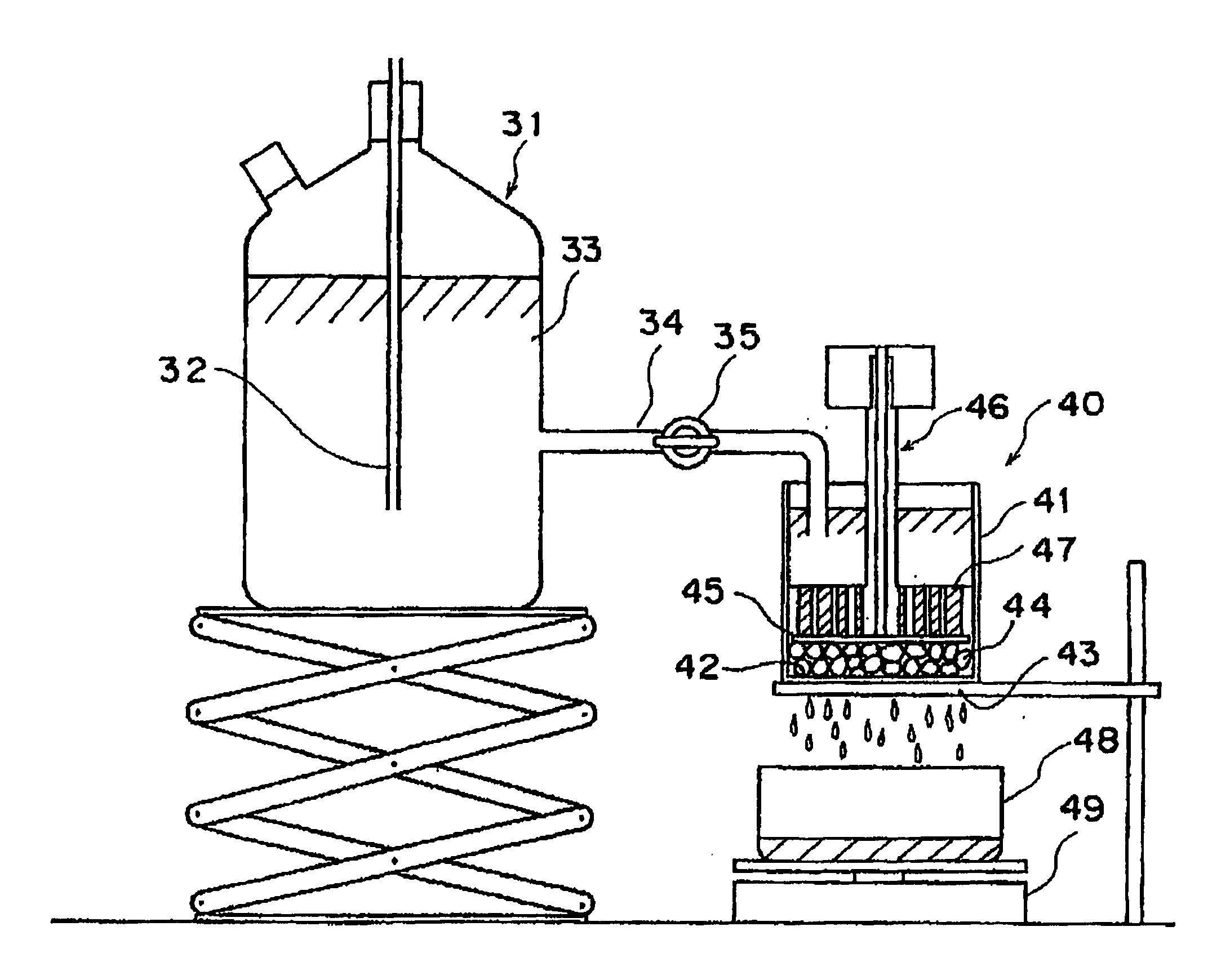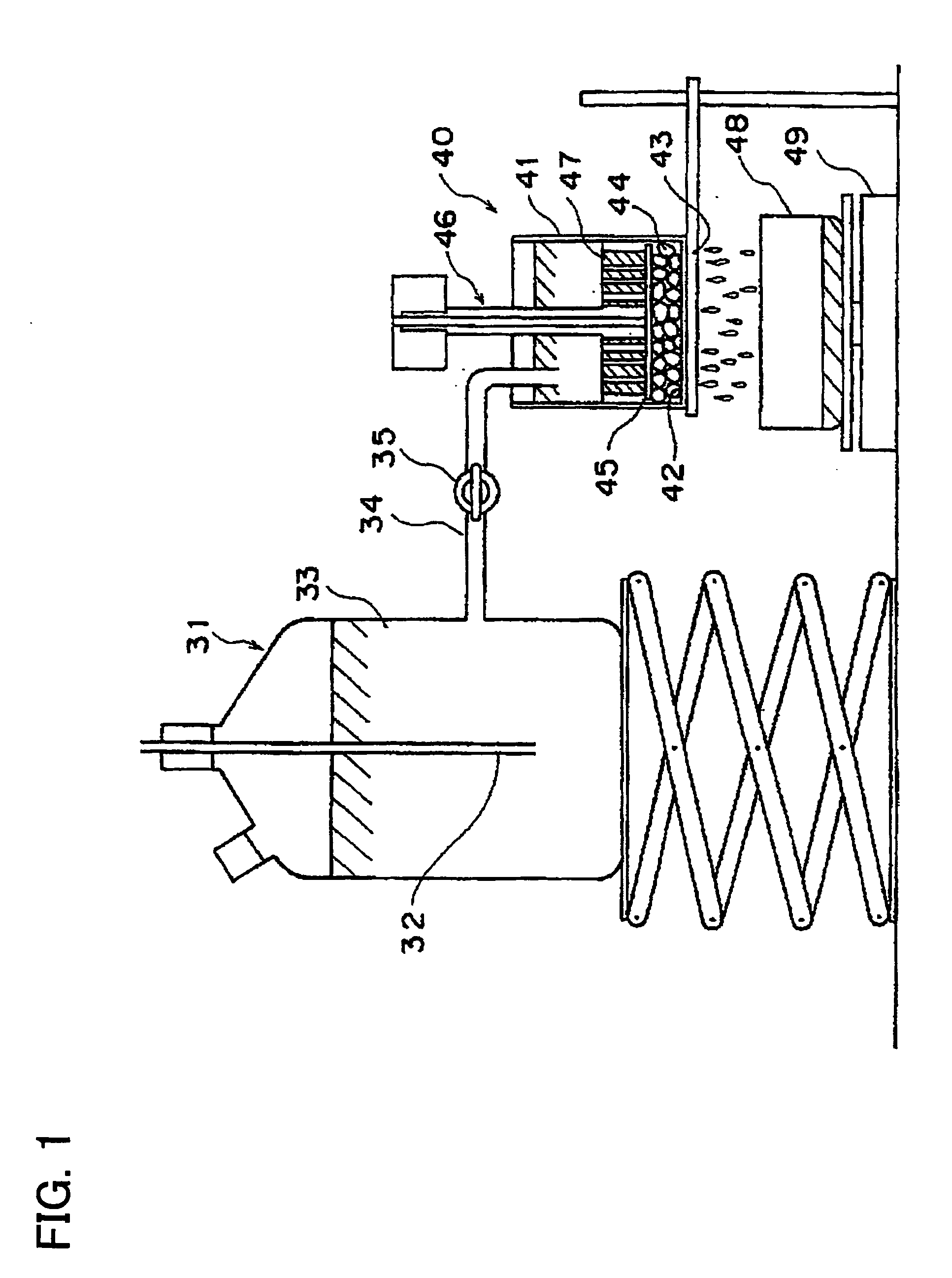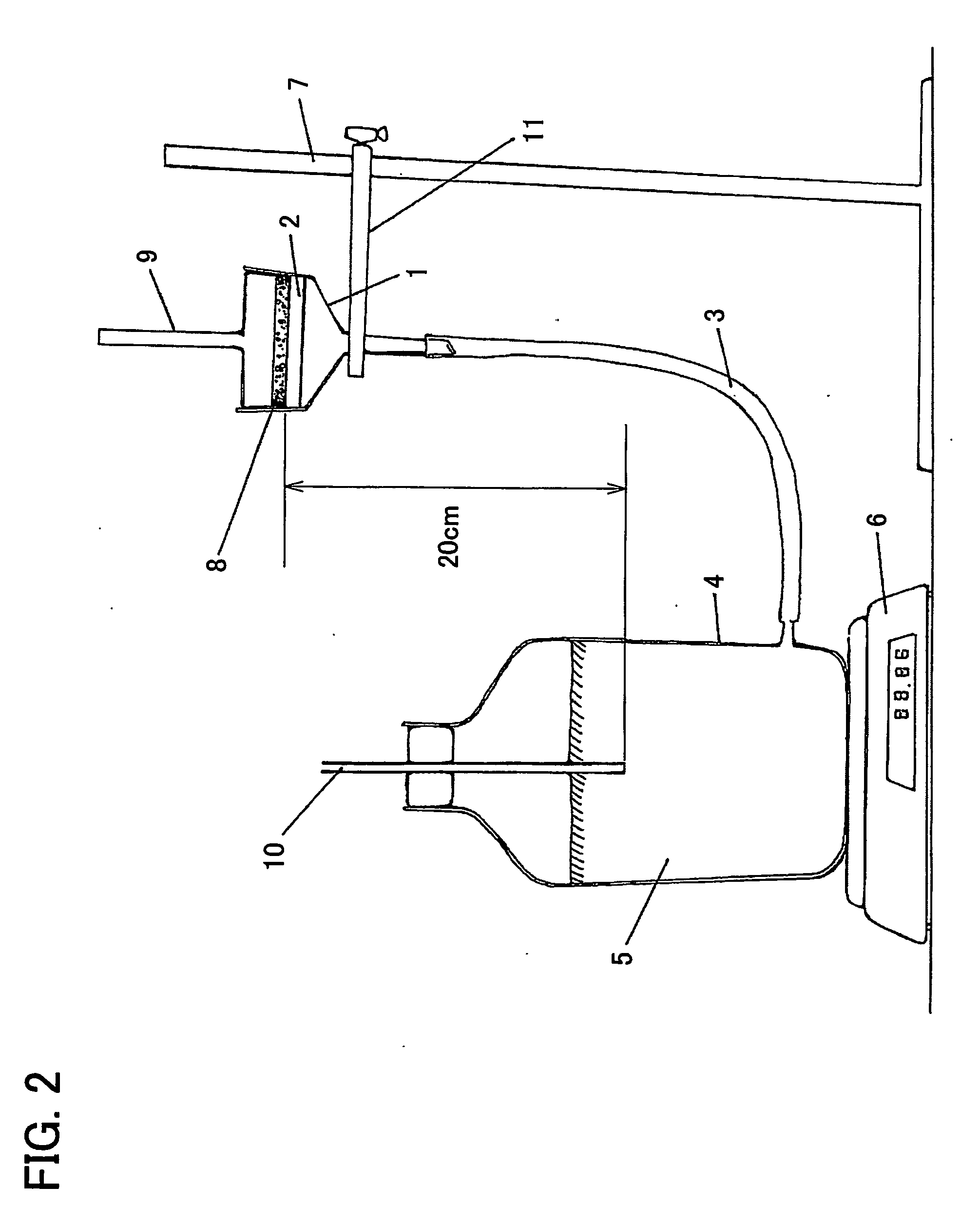Water absorbent and producing method of same
a water-absorbing resin and producing method technology, applied in the direction of bandages, chemistry apparatus and processes, other chemical processes, etc., can solve the problems of poor gel properties, poor anti-urine tolerance, swelled gels become sticky (slimy), poor gel properties, etc., and achieve excellent gel properties. excellent
- Summary
- Abstract
- Description
- Claims
- Application Information
AI Technical Summary
Benefits of technology
Problems solved by technology
Method used
Image
Examples
first embodiment
[0054] To begin with, abbreviations used in the present invention are defined here. CRCs (Centrifuge Retention Capacity saline) is absorbency for 0.9 wt % saline.
[0055] CRCdw (Centrifuge Retention Capacity deionized water) is absorbency for deionized water.
[0056] AAPs (Absorbency Against Pressure saline) is absorbency for a saline measured when pressure is applied on a sample.
[0057] AAPdw (Absorbency Against Pressure deionized water) is absorbency for deionized water measured when pressure is applied on a sample.
[0058] SFC (Saline Flow Conductivity) is flow conductivity for 0.69 wt % saline
[0059] CSF (Capillary Suction Force) indicates absorbency due to capillary suction.
[0060] D50 is a weight-average particle diameter.
[0061]σζ is a logarithmic standard deviation of particle size distribution.
[0062] Measuring methods for those figures will be described in Example later. The saline is an aqueous solution of sodium chloride.
[0063] In the present invention, the terms “weight” ...
second embodiment
[0177] The following describes another embodiment of the present invention.
[0178] In the present embodiment, a water-absorbing resin is a water-swelling cross-linked polymer prepared by polymerization, drying, and then crushing, but have not been surface-treated with a surface cross-linking agent of various kinds. Further, in the present embodiment, a water absorbent contains water-absorbing resin particles whose surfaces have been cross-linked with the cross-linking agent (hereinafter, such water-absorbing resin particles sometime referred to as surface-treated water-absorbing resin particles), and may contains another component such as a liquid permeability improver or the like.
[0179] Content of the surface-treated water-absorbing resin particles in the water absorbent is preferably in a range of 80 to 100% by weight, more preferably in a range of 90% to 100% by weight, and more preferably in a range of 95% to 100% by weight (The surface-treated water-absorbing resin particles h...
example 1
[0269] In a reactor vessel which was composed of a lid and a twin-arm type stainless kneader (content volume of 10 liters) jacketed and provided with two sigma blades, a reaction liquid was prepared by dissolving 11.9 g (0.1 mol %) of polyethyleneglycol diacrylate and 3.65 g of disodium hydrogenphosphite pentahydrate in 5432 g of an aqueous solution of sodium acrylic acid (a sodium acrylic acid aqueous solution). The aqueous solution had monomer concentration of 39 wt % and a neutralization ratio of 71 mol %. Then, the reaction liquid was deaerated for 30 minutes under a nitrogen gas atmosphere. Then, 29.36 g of a 10 wt % sodium persulfate aqueous solution and 24.47 g of a 0.1 wt % L-ascorbic acid aqueous solution were added to the reaction liquid with stirring. About one minute later, polymerization started. The polymerization was carried out at a temperature in a range of 20° C. to 95° C. while crushing gels generated via the polymerization. After 30 minutes from the start of the ...
PUM
| Property | Measurement | Unit |
|---|---|---|
| Length | aaaaa | aaaaa |
| Length | aaaaa | aaaaa |
| Fraction | aaaaa | aaaaa |
Abstract
Description
Claims
Application Information
 Login to View More
Login to View More - R&D
- Intellectual Property
- Life Sciences
- Materials
- Tech Scout
- Unparalleled Data Quality
- Higher Quality Content
- 60% Fewer Hallucinations
Browse by: Latest US Patents, China's latest patents, Technical Efficacy Thesaurus, Application Domain, Technology Topic, Popular Technical Reports.
© 2025 PatSnap. All rights reserved.Legal|Privacy policy|Modern Slavery Act Transparency Statement|Sitemap|About US| Contact US: help@patsnap.com



